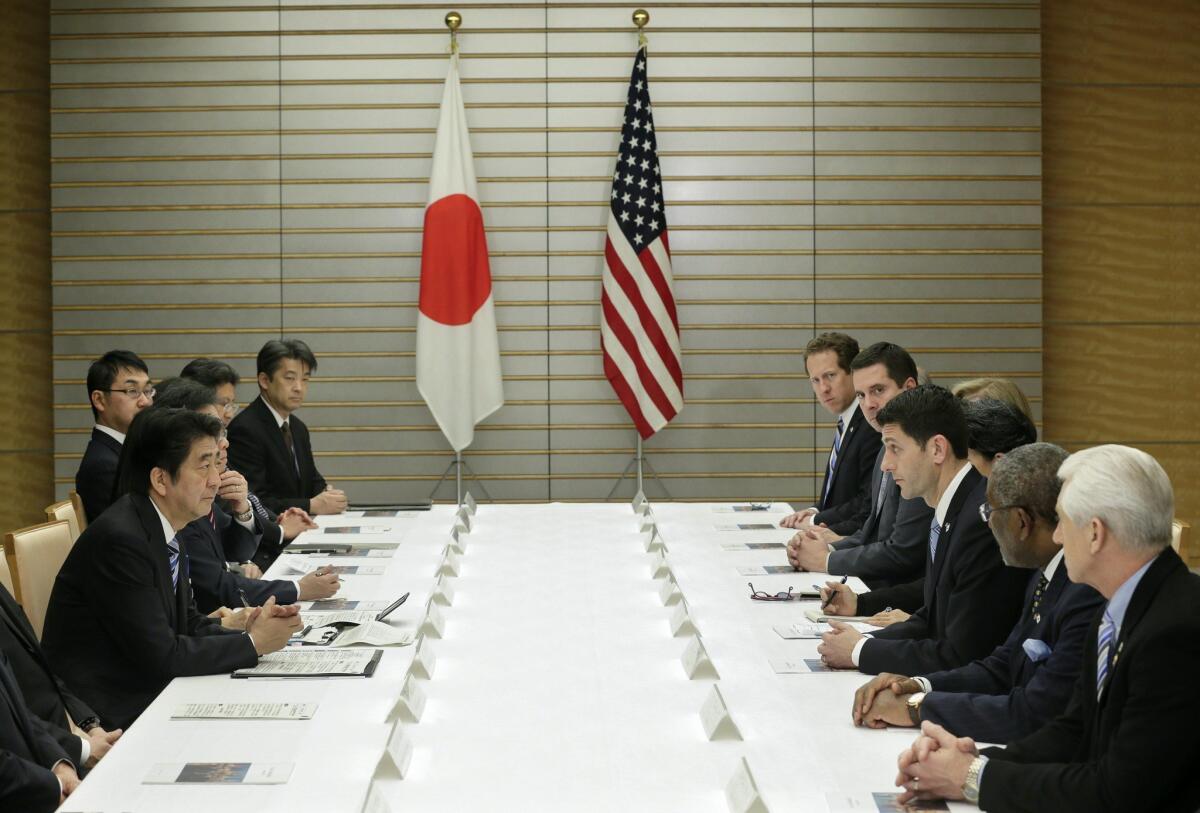Editorial: Congress should OK fast-track authority to get a better trade deal

- Share via
With negotiators closing in on a major and hotly disputed trade pact for the Pacific region, the Obama administration is pressing Congress again to pass a bill that would require an up-or-down vote on the agreement with no amendments or filibusters. At this point, it’s hard for the administration to argue that this “fast track” process is crucial to its ability to get an agreement — a deal appears to be coming regardless. And it’s far too late for Congress to lay out its trade goals, which is one of the traditional rationales for granting fast-track authority. But it’s not too late for the deal to get better, and approving fast-track authority could help.
Fast-track laws, formally known as “trade promotion authority,” accomplish three main things. They declare Congress’ goals for trade deals, require consultations with Capitol Hill during the negotiations and set an expedited process for the legislation needed to implement a trade treaty.
Lawmakers critical of the as-yet unfinished Trans-Pacific Partnership complain that the administration has been eager only to tell them what it was proposing, not to accommodate their concerns. Yet Congress hasn’t enacted a fast-track law since 2002, leaving the U.S. Trade Representative to rely on 13-year-old negotiating objectives. That delay has been caused mainly by lawmakers who don’t like free-trade deals, period, although they’ve been joined more recently by trade supporters spooked by the Pacific agreement. It’s a cutting-off-your-nose-to-spite-your-face strategy that has prevented Congress from telling the administration — not to mention Japan, Vietnam and the other countries negotiating that deal — what it expects from the pact.
Those countries’ negotiators may be understandably reluctant to make their last, best offer if Congress insists on the right to amend anything the administration signs. Passing a new fast-track bill, on the other hand, would give Congress the chance to make its demands clear. The bill could also reserve the right to deny fast-track consideration for any proposed deals that don’t meet its negotiating objectives. The bottom line would remain the same: If the deal isn’t good, Congress can and should vote it down.
Because trade deals are negotiated in secret, it’s impossible to tell whether the Trans-Pacific Partnership will be as bad as critics warn. Considering that the United States typically imposes higher standards on its manufacturers and charges lower tariffs on imported goods, however, it has more to gain from free-trade deals than its trading partners. That’s why the administration should keep pursuing them, as it is with Europe and others, and Congress should provide explicit guidance. Lawmakers need to put fast-track authority back in place now, before negotiators push away from the table on the Trans-Pacific Partnership.
Follow the Opinion section on Twitter @latimesopinion and Facebook
More to Read
A cure for the common opinion
Get thought-provoking perspectives with our weekly newsletter.
You may occasionally receive promotional content from the Los Angeles Times.









